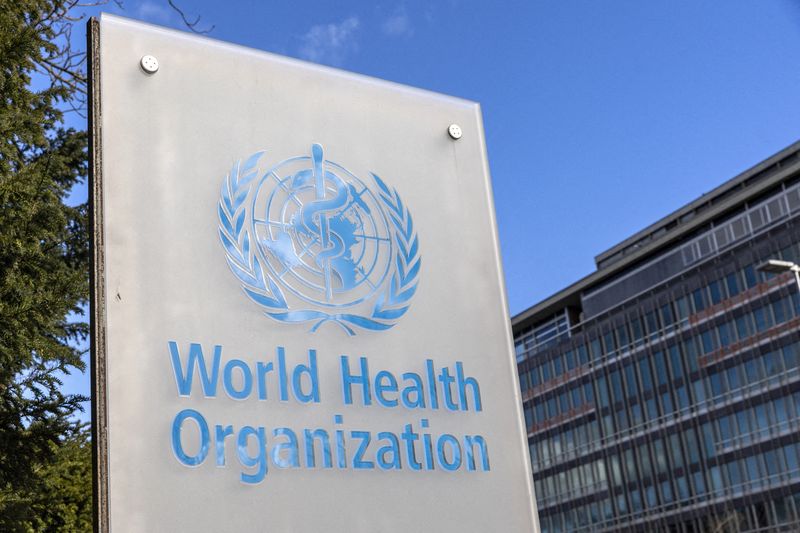By Manas Mishra and Jennifer Rigby
(Reuters) -The World Health Organization and partners on Friday set up a scheme to help bring mpox vaccines, tests and treatments to the most vulnerable people in the world’s poorest countries, similar to efforts during the COVID-19 pandemic, after earlier approving the first shot for the fast-spreading disease.
Both steps should make it easier for badly-hit African countries to access the vaccine, as a new type of the mpox virus spreads from the Democratic Republic of Congo to its neighbours. The WHO has declared the outbreak a global public health emergency.
“Alongside other public health interventions, vaccines, therapeutics and diagnostics are powerful tools for bringing the mpox outbreaks in Africa under control,” said WHO Director-General Tedros Adhanom Ghebreyesus.
He said COVID-19 had shown the need for international collaboration to make access fairer. During the pandemic, many low-income countries were left behind in the global scramble for medical resources, particularly vaccines.
European countries, the United States and Japan have already pledged to donate 3.6 million doses of the two main vaccines used against mpox, the WHO said on Friday. Vaccinations are due to start from Oct. 2 with the first tranches of donations.
The WHO urged more countries to donate shots that were originally developed and stockpiled by rich nations for smallpox, and said it would work with affected countries to get them to the people at highest risk.
Earlier on Friday, the WHO said it had approved Bavarian Nordic's vaccine, known as Jynneos in the United States. It is also considering LC16, made by the Japanese manufacturer KM Biologics.
The approval, known as prequalification, means U.N. agencies can now buy the vaccines as well as help co-ordinate donations. Gavi, the Vaccine Alliance, co-funds vaccine purchases for low-income countries in this way and has up to $500 million to spend on mpox.
DELAYS
The WHO has faced criticism for moving too slowly on mpox vaccines.
Bavarian Nordic's vaccine has been used worldwide since 2022, after U.S. and European regulators backed it for use against a different strain of mpox that spread globally in 2022.
The WHO only formally began the process in August this year.
Other factors, including the roughly $100 price tag for the vaccine, competing disease outbreaks, and sluggish processes in badly-hit countries like Congo have also played a role.
"The evidence we have now is... it is important we take advantage of it (the vaccine) to protect our population," Dimie Ogoina, chair of the WHO's mpox emergency committee, had said before the approval.
He however stressed that vaccines were not a "magic bullet" and other public health measures were also important.
'OFF-LABEL' USE IN CHILDREN

Bavarian Nordic said the vaccine was cleared for immunization against smallpox, mpox, and related orthopoxvirus in those who are 18 and older, but it could be used "off-label" for children and pregnant and immunocompromised people in outbreak conditions, where the benefits of vaccination outweigh the risks. LC16 can already be given to children, according to the Japanese regulator, although it requires a special kind of needle.
Children are particularly vulnerable to mpox, a viral infection that typically causes flu-like symptoms and pus-filled skin lesions, as well as people with immune system conditions, such as HIV.
